Search Results
Showing results 81 to 100 of 114
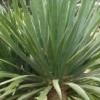
How Plants Grow
Source Institutions
In this biology activity (page 3 of the PDF), learners will explore how plants turn sunlight into food through a process called photosynthesis.
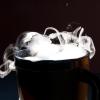
Sublime Sublimation
Source Institutions
In this activity, learners explore sublimation by conducting experiments with dry ice.
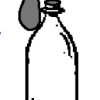
Gas Production: Blow up a balloon!
Source Institutions
In this classic reaction, learners baking soda and vinegar in a soda bottle to produce carbon dioxide (CO2) gas. This gas inflates a balloon.
Yeast Balloons
Source Institutions
Visitors observe a bottle with a balloon attached around the mouth. The bottle contains a solution of yeast, sugar, and water.
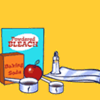
Mummy Magic
Source Institutions
Make your own mummy! Using a combination of salts, transform an apple into a mummy and discover how the Ancient Egyptians used drying as one step in the mummification process.
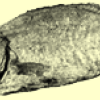
Make a "Mummy"
Source Institutions
The Ancient Egyptians used a naturally-occurring salt from the banks of the Nile River, called natron, to mummify their dead.
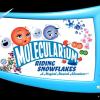
Building Molecules
Source Institutions
This online interactive has three activities in the NanoLab (press the upper right button): Build, Zoom, and Transform.

Build a Rocket - and a Launch Pad!
Source Institutions
In this activity, learners construct a rocket powered by the pressure generated from an effervescing antacid tablet reacting with water, and build a launch pad for their rocket.
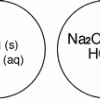
Gas Producing Micro-Reaction
Source Institutions
In this chemistry activity, learners use common chemicals and metals to examine reactions that produce gaseous substances.
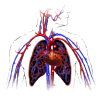
Circulatory System Skit: Act out the Flow of Blood
Source Institutions
In this activity, learners act out the flow of blood in the human body! A great way to get learners up and moving while learning about the circulatory system.
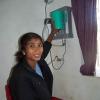
Straining Out the Dirt
Learners take on the role of environmental engineers as they design water filters.
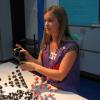
The Electric Squeeze
Source Institutions
In this activity/demo about piezoelectricity, learners discover how some crystals produce electricity when squeezed.
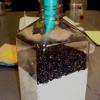
Earth Atmosphere Composition
Source Institutions
In this activity, learners use rice grains to model the composition of the atmosphere of the Earth today and in 1880. Learners assemble the model while measuring percentages.

Solving Dissolving
Source Institutions
The Sacred Cenote at Chichén Itzá is a sink hole, or well, containing groundwater. In this activity, learners create their own cenote using chalk, limestone, acids, and rain water.

Soda Geyser
Source Institutions
In this quick activity (page 1 of PDF under SciGirls Activity: Lift Off), learners will use the ever-popular soda geyser experiment to test the reactivity of the various sugar candies or mints.
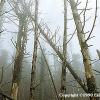
The Effects of Acid Rain
Source Institutions
In this environmental science activity (page 4 of the PDF), learners use vinegar and chalk to observe the effect of acid rain on various building materials and plant life.
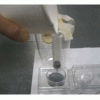
Column Chromatography
Source Institutions
In this activity, learners separate the components of Gatorade using a home-made affinity column.
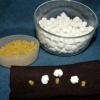
Nuclear Fusion
Source Institutions
This simple and engaging astronomy activity explains nuclear fusion and how radiation is generated by stars, using marshmallows as a model.
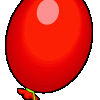
Yeast Balloons: Can biochemistry blow up a balloon?
Source Institutions
Using yeast, sugar, and water, learners create a chemical reaction which produces carbon dioxide (CO2) gas inside a 2-liter bottle. They use this gas to inflate a balloon.
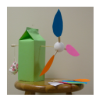
Wind Works!
Source Institutions
Learners will build and experiment with their own windmills made from simple household materials.
